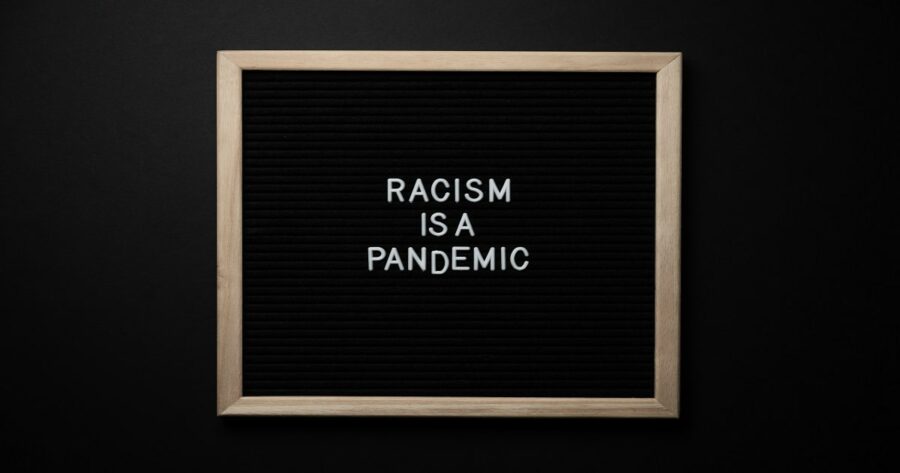Today Is International Day For The Elimination of Racial Discrimination
- Ingrid Jones
- Trending
- World News
- March 21, 2023

Today is International Day for the Elimination of Racial Discrimination, which is observed annually on March 21st. This day serves as an opportunity for individuals, organizations, and governments around the world to recognize the ongoing issue of racism and to promote actions toward its elimination. The day was established in 1966 by the United Nations General Assembly, following the Sharpeville massacre that occurred on March 21st, 1960, in South Africa, where 69 people were killed, and 180 were injured while protesting against apartheid.
Racial discrimination is defined as any distinction, exclusion, restriction, or preference based on race, colour, descent or national or ethnic origin that nullifies or impairs the recognition, enjoyment, or exercise of human rights and fundamental freedoms on an equal basis. This type of discrimination can occur in various settings, such as education, employment, housing, healthcare, and the criminal justice system.
The International Day for the Elimination of Racial Discrimination is a reminder that racism is a pervasive problem that affects people of all races and ethnicities. The day is an opportunity to reflect on the impact of racism on individuals, communities, and societies and to take action to promote equality, diversity, and inclusion.
One of the key ways to eliminate racism is through education. Educating individuals about the impact of racism and discrimination can help them understand the experiences of marginalized communities and develop empathy and compassion toward them. Schools, universities, and workplaces can promote diversity and inclusion by incorporating anti-racism education and training programs.
Governments can also play a significant role in eliminating racism. Legislation that prohibits racial discrimination and promotes equal opportunities and protection of human rights can help create a more just and equitable society. Governments can also provide funding for programs and initiatives that aim to reduce racism and promote diversity and inclusion.
In addition to education and government action, individuals can also take action to eliminate racism. Allies can support marginalized communities by speaking out against racism, advocating for equal treatment, and promoting diversity and inclusion in their communities. Individuals can also take action by examining their biases and behaviours and consciously trying to challenge and change them.
The International Day for the Elimination of Racial Discrimination is also an opportunity to recognize the contributions and achievements of marginalized communities. Indigenous people and people of colour have made significant contributions to society despite facing discrimination and inequality. Celebrating their contributions and achievements can help promote diversity and inclusion and challenge negative stereotypes.
It is important to recognize that the fight against racism is ongoing and requires collective action from all individuals, organizations, and governments. The impact of racism can be felt in various aspects of society, from education to healthcare to employment, and requires systemic change to be eliminated. Recognizing the importance of diversity and inclusion and taking action towards their promotion is essential to building a more equitable and just society for all.
The theme for the 2023 International Day for the Elimination of Racial Discrimination is “on the urgency of combatting racism and racial discrimination 75 years after the adoption of the Universal Declaration of Human Rights (UDHR)..” “Seventy-five years ago, for the first time, the international community agreed on common values and acknowledged that rights are inherent to every human being and not granted by the State. These rights are enshrined in the Universal Declaration of Human Rights, a blueprint for international human rights norms.” Said the United Nations
The COVID-19 pandemic has also highlighted the ongoing issue of racism and discrimination. The pandemic has disproportionately affected marginalized communities, including Indigenous peoples, people of colour, and low-income individuals. The pandemic has also exposed existing inequalities and systemic issues, including unequal access to healthcare, education, and employment opportunities.
Governments and organizations can take action by providing funding and resources to support these communities, including access to healthcare, education, and employment opportunities. Additionally, efforts must be made to combat racism and discrimination in the context of the pandemic. This includes addressing xenophobia and anti-Asian hate crimes that have increased since the start of the pandemic.
In Canada, the International Day for the Elimination of Racial Discrimination is an opportunity to recognize the impact of racism and discrimination to Indigenous peoples and communities. Indigenous peoples have faced historical and ongoing systemic discrimination, including the legacy of residential schools, the Sixties Scoop, and the ongoing crisis of missing and murdered Indigenous women and girls. Recognizing this discrimination’s impact and taking action toward reconciliation and healing is essential.
The Southern Chiefs’ Organization (SCO) in Manitoba is one example of an Indigenous-led organization that is taking action to eliminate racism and promote Indigenous rights and self-determination. The SCO represents 34 First Nations in Manitoba and is committed to promoting the well-being and prosperity of Indigenous peoples. In a statement released on the International Day for the Elimination of Racial Discrimination, SCO Grand Chief Jerry Daniels urged individuals and governments to work towards eliminating racism and building a better world for all people.
The International Day for the Elimination of Racial Discrimination is a call to action for all individuals and societies to work towards a fair and just society of acceptance and tolerance. It is essential to recognize that every person deserves to be treated with dignity and respect regardless of their race, ethnicity, or cultural background. By promoting diversity, inclusion, and equality, we can create a world where everyone is seen as equal and empowered to participate fully in society. It is up to all of us to take action toward eliminating racism and building a better world for all people.








